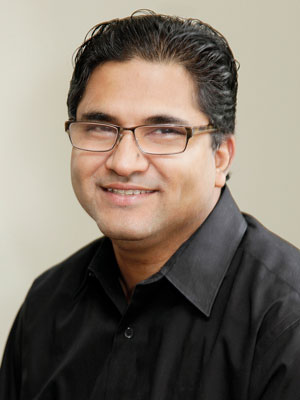Face your fears – facilitate disruption

The average age of a company in the S&P 500 is now less than 20 years, down from about 60 in the 1950s. The disruptive power of technology and changing consumer behaviour is killing off companies earlier and at a much faster pace than decades ago. The only way to be part of the successful minority of organisations that continue to thrive is to embrace disruption and disrupt your own organisation before somebody else does. Constant renewal and transformation is no longer a choice but a necessity.
And therein lies the conundrum. The rapid pace of change and the uncertainty it creates and the pressure it puts on employees and stakeholders leads to large amounts of fear. And fear can be the biggest roadblock to transformation and the largest source of waste in organisations. Fear leads to indecision, resistance to new ideas and the inability to have the necessary and often difficult and honest conversations that are required in high stakes situations. So how do we create an adaptive organisation that can constantly renew to meet the challenges of the future – an adaptive organisation that embraces disruption by disrupting their current relationship to fear?

Gaurav Bhatnagar, Managing Partner
This is not a situation with easy answers. Fear exists for a reason – it arouses and motivates us, and keeps us safe from danger. At the same time, it also keeps us stuck in comfort zones. Being stuck comes at a huge cost to new opportunities – we play it safe, not taking risks, not trying new things or evolving. So, as individuals, the question we are faced with is how do we develop a functional relationship with fear? How do we listen to the cues to danger that it gives us but prevent it from keeping us stuck. And as leaders, how do we create a system that encourages and supports employees in developing this functional relationship to fear, getting unstuck and out of the comfort zone?
In our experience, the best way to make this happen is to start any transformation effort with the individual. What are our limiting mindsets? What are our assumptions? What are our values and what are our fears that have been holding us back from learning, adapting, problem solving and creating at our full potential? The process needs to be one that respects the individual, encouraging them to move to a point of choice – not one that is enforced or imposed.

Mark Minukas, Partner
Successful programmes empower people to respond to themselves, others and their environments differently and become willing to step out of a victim mindset (which resists change) to a mastery mindset (which looks for solutions). Successful programmes align employees’ values and cultivate interpersonal abilities that enable people to have difficult conversations in high stakes situations. And successful programmes develop the organisational muscle to learn, adapt and thrive in an environment of accelerated change.
So, leaders, listen to your fears! To thrive in today’s fear-inducing world of disruption, you must learn how to disrupt fear – not ignore it.
About the authors
Gaurav Bhatnagar is Managing Partner and Mark Minukas is a Partner at business transformation specialists Co-Creation Partners Inc. Gaurav specialises in designing culture transformation programmes and facilitating experiential workshops that drive transformational shifts within organisations. Mark is a continuous improvement expert with over 16 years’ experience in leadership and consulting.
Further information
www.cocreationpartners.com


